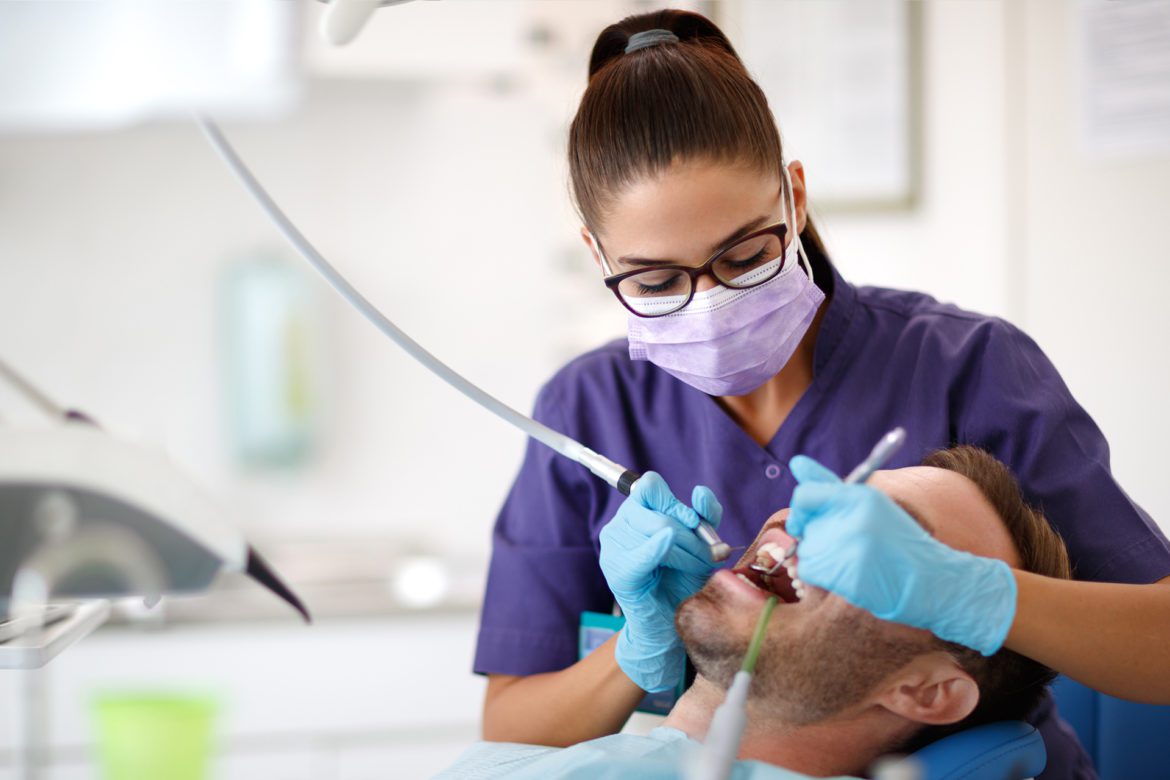Dentists could significantly increase the number of patients they see during the pandemic by switching the drills they use, according to new research.
The study investigated whether different drill types increased or reduced the spread of aerosol spray in a dental surgery. Reducing aerosol spray results in a safer environment for patients and the dental team.
The findings show that the time taken to prepare safe surgeries between appointments could be radically reduced by changing drills, potentially resulting in millions more treatments being carried out.
The study, led by the University of Leeds, compared the aerosol patterns produced by dental drills rotated by air streams – that are most commonly used by UK dentists-to those produced by electric powered drills.
Instead of simply mapping the spread of water spray during treatment, the research team instead introduced a virus that is similar in size and structure to the SARS-CoV-2 virus that causes COVID-19.
Their results show that by replacing the high-speed air drills with lower speed electric drills, aerosol spray was virtually eliminated, creating a safer environment for both patients and the dental team.
The research, funded by the British Endodontic Society, is published in the Journal of Dental Research.
“This is the first time the spread of a harmless COVID-19-like virus has been analyzed during routine drilling procedures.
“If the spread of that aerosol spray can be reduced or eradicated, that has enormous, positive implications for how dentists can go about their daily business not just during the corona virus pandemic, but also during future virus outbreaks.”
During the first national lockdown in England between March and June 2020, all dental surgeries were closed.
Since reopening, because patients may be asymptomatic carriers of the SARS-CoV-2 virus when attending a dentist appointment, strict regulations have been introduced to ensure work areas are safe and prepared appropriately between appointments. Additional protective measures have been required for the dental team delivering patient care. This has led to much longer gaps between treating patients.
Before the pandemic, about 18 million adults and children attended an NHS dental appointment each year in England.
Reports by charity Health Watch point to a growing backlog of patients waiting to see a dentist, with fears this could rise as the SARS-CoV-2 virus is expected to remain prevalent in the general population for many months more.
Adjustments to the pandemic measures require high quality evidence to show how dentists can reduce the risk of spreading the SARS-CoV-2 virus when carrying out aerosol generating procedures (AGPs) during dental treatments.
During the new research tests, use of the electric drill rather than an air drill led to a 99.98% reduction in aerosol spread of the virus into the air.
When a dental suction tool was added, there was no detectable virus on surfaces or in air samples taken six to 10 minutes afterwards.
The new research was carried out by the School of Dentistry, School of Civil Engineering and the Leeds Dental Institute.
The research team set up simulated dental treatments in ….

